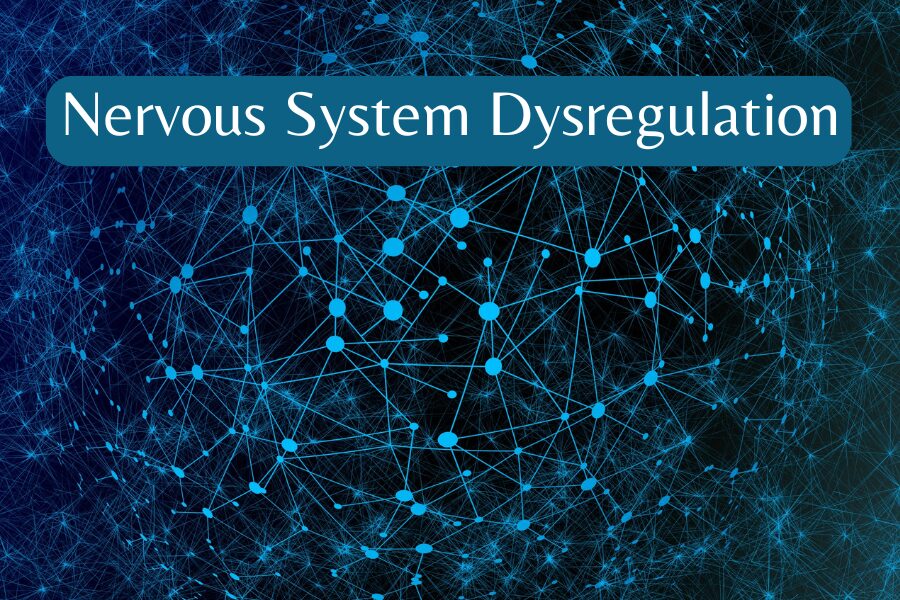Most wellness advice treats stress and anxiety as if they show up the same for everyone.
But when you’re a woman — especially a high-achieving, sensitive one — the reality is different.
Stress and anxiety in women are shaped by more than just thoughts or workload.
They’re influenced by:
- Hormones
- Nervous system sensitivity
- Emotional labor
- Societal expectations
That means the typical advice — “just breathe,” “set goals,” “think positively” — often falls short.
Because you don’t need willpower.
You need a strategy that fits your biology.
How Stress and Anxiety Show Up Differently in Women
What starts as stress — deadlines, tension, conflict — often turns into persistent anxiety when the body doesn’t get a chance to recover.
In women, this process is faster and more intense.
Why?
- Female brains stay engaged with emotional stimuli longer
- Hormonal shifts increase cortisol sensitivity
- Stress is processed relationally, not just mentally
- Cultural pressure to “hold it all together” blocks recovery
The result?
Sleepless nights, constant overthinking, gut issues, emotional overwhelm — with no “off switch.”
The Biological Triggers Behind Stress and Anxiety in women
Work stress Hormones play a central role in stress and anxiety in women.
Estrogen, progesterone, and cortisol interact in ways that increase vulnerability to:
- Panic or tension before menstruation
- Mood crashes postpartum or in perimenopause
- Emotional flooding after minor stressors
- Difficulty regulating after conflict or emotional labor
And yet…
Most systems women live and work in ignore these rhythms completely.
This disconnect is not just exhausting.
It’s dysregulating your entire body.
Why High-Achieving Women Hide Their Anxiety
You’re organized.
Capable.
Strong.
But also…
- Constantly on edge
- Overanalyzing every interaction
- Pushing through exhaustion
- Feeling disconnected from your body
This is high-functioning anxiety — and it’s common in women who’ve learned to meet every demand, even at their own expense.
The problem isn’t your ability.
It’s the chronic lack of recovery your body is getting.

Real Recovery Starts in the Nervous System
To heal stress and anxiety in women, we need to stop focusing only on thoughts — and start working with the nervous system.
This means:
- Learning how your body signals stress (before it explodes)
- Syncing your self-care and productivity with your hormonal cycle
- Using somatic tools that match your nervous system’s actual needs
- Setting boundaries that protect your energy and emotional bandwidth
This isn’t a luxury.
It’s the biology-informed recovery plan every high-functioning woman deserves.
Every woman’s nervous system is unique.
No two women respond to stress and anxiety in exactly the same way — and there’s a biological reason for that.
Your nervous system is shaped by:
✅ Your Genetics
Some women are born with more sensitive stress response systems — due to how their genes regulate cortisol, adrenaline, and serotonin. This makes them more attuned to emotional shifts, relational conflict, or uncertainty.
✅ Your Hormonal Landscape
Hormones like estrogen, progesterone, testosterone, and thyroid hormones influence your mood, reactivity, and emotional resilience. These fluctuate naturally throughout your cycle — but can also be impacted by birth control, pregnancy, postpartum, or perimenopause.
This means:
- What works to calm you one week might feel irritating the next
- Your window of tolerance for stress changes with your biology
✅ Your Life History
Your nervous system also carries imprints from past experiences — especially early relationships, traumas, and chronic stress environments.
For example:
- If you were often praised for being calm and helpful, you may suppress your anxiety to “perform stability”
- If you experienced chaotic or unsafe environments, your body may default to hypervigilance even in safe spaces
This creates unique coping patterns, like:
- Overfunctioning (taking on too much to feel safe)
- Fawning (people-pleasing to avoid conflict)
- Freezing (numbing out or disconnecting to survive)
✅ Your Current Environment
Even the most resilient woman will feel dysregulated if she’s:
- Chronically overstimulated (screens, noise, demands)
- Emotionally unsupported at home or work
- Ignoring her body’s natural cycles and signs
This is why generic advice doesn’t work — because your system needs solutions that speak your body’s language.
Your stress and anxiety aren’t random.
They’re rooted in how your body has learned to protect you — and that deserves understanding, not judgment.
Let’s Map Your Personal Stress & Anxiety Blueprint
Most women are told to manage stress by doing more — more mindfulness, more routines, more self-control.
But true healing doesn’t come from doing more.
It comes from understanding your own system and your own triggers.
That’s why I offer a free 45-minute consultation to help you build a personalized nervous system map — a blueprint for understanding how your body, your history, and your hormones interact with stress and anxiety.
In this session, we’ll explore:
🧠 Your own Stress Style
- Do you fight, flee, freeze, or fawn under pressure?
- How does your body try to protect you — and how can you support it better?
🌪 Your Nervous System Patterns
- Are you constantly in “high alert” mode, or do you swing into exhaustion and shutdown?
- What’s your current default — overthinking, irritability, numbing out?
🔄 Your Hormonal Influences
- How does your cycle or hormonal phase affect your emotional resilience, sleep, and reactivity?
- Is your anxiety cyclical, chronic, or situational?
💡 Your Regulation Needs
- What kind of tools does your system respond to — movement, breath, stillness, connection?
- Where are you overusing willpower and ignoring your body’s signals?
This isn’t a one-size-fits-all plan.
It’s a science-backed, cycle-aware, deeply personalized strategy to regulate from the inside out.
Ready to understand your stress and anxiety — and actually support your body through it?
Because stress and anxiety aren’t flaws.
They’re not a sign that you’re broken — they’re your body’s way of asking for care.
Stress and anxiety in women often show up differently:
They’re more intense, more persistent, and more closely tied to hormones, emotional labor, and relational pressures.
But that doesn’t mean you’re “too sensitive” or “too much.”
It means your body is speaking a language shaped by your biology — a language that most systems still don’t understand.
🎁Book your complementary session: https://bit.ly/47QTFyj
Together, we can identify the root causes of your triggers and create a personalized plan to enhance your mental resilience.
To your Well-being
By Marta Raga, Executive & Life Coach Specializing in Stress Management








0 Comments